When crafting a job application letter, addressing an employment gap can feel daunting, but it doesn't have to be! Being open about your past provides an opportunity to share personal growth and skills gained during your time away from the workforce. Whether you were caring for a family member, pursuing further education, or even taking time for self-reflection, these experiences can showcase your resilience and adaptability. Ready to learn how to effectively communicate your journey in your application? Read on for tips and templates to guide you!

Honest and clear explanation
An employment gap can occur for several reasons, such as pursuing further education, caring for family members, or personal health issues. This period away from the workforce can demonstrate resilience and adaptability. Employers often appreciate candidates who can transparently discuss their gaps. For example, taking time off to care for a sick relative shows dedication and compassion, qualities valued in many workplaces. Similarly, attending vocational training or gaining certifications during a gap highlights continuous professional development despite being outside traditional employment. Employers may view such gaps positively, recognizing them as a chance for personal growth and valuable life experience.
Positive framing of the gap
Addressing an employment gap positively can showcase personal growth and skill development. For instance, during a two-year hiatus from the workforce, an individual might have engaged in volunteer work with non-profit organizations, thereby honing project management and communication skills. Additionally, pursuing online courses in digital marketing or data analysis could demonstrate a commitment to professional development and adaptability to industry trends. These experiences reflect resilience, an ability to overcome challenges, and a proactive approach towards self-improvement, which are valuable traits employers appreciate.
Skills or experiences gained
Employment gaps in resumes often raise questions from potential employers. However, these periods can be leveraged to demonstrate skill acquisition and personal growth. For instance, during a six-month sabbatical, individuals may engage in online courses or certifications, such as Project Management Professional (PMP) or Digital Marketing, enhancing their professional qualifications. Volunteering initiatives with local nonprofits may provide hands-on experience in teamwork and leadership, illustrating adaptability and commitment to community service. Additionally, freelance projects can showcase relevant industry skills, allowing for practical applications of theoretical knowledge. These experiences contribute to a well-rounded skill set, making candidates more competitive in the job market.
Relevance to the job
A significant employment gap often raises questions during job applications, particularly for positions requiring consistent experience. Candidates may redirect focus to the relevance of personal development during the gap period. Skills acquired through volunteer work, online courses, or freelance projects can enhance qualifications for desired positions. Industry-related workshops or certifications obtained during this time might directly align with job responsibilities, demonstrating commitment to professional growth. Applicant's adaptability to new technologies or practices during this hiatus can also showcase proactive learning and relevancy to prospective employers. Emphasizing transferable skills gained through life experiences reinforces the narrative of resilience and readiness to contribute positively to the workplace environment.
Expression of enthusiasm and readiness
In a competitive job market, addressing employment gaps can be essential for demonstrating commitment and resilience. Employment gaps, often due to personal circumstances such as caregiving responsibilities or further education, can be explained effectively by highlighting the skills gained during that period. For instance, volunteering at local non-profits or acquiring certifications in project management can showcase initiative and a focus on professional development. Employers value candidates who exhibit enthusiasm for their field; expressing readiness to contribute to their team and eagerness to learn new technologies can significantly enhance a job application. Optimistically presenting these gaps as opportunities for growth rather than setbacks can transform potential concerns into strengths during the hiring process.
Letter Template For Job Application Employment Gap Explanation Samples
Letter template of job application addressing employment gap due to personal reasons.
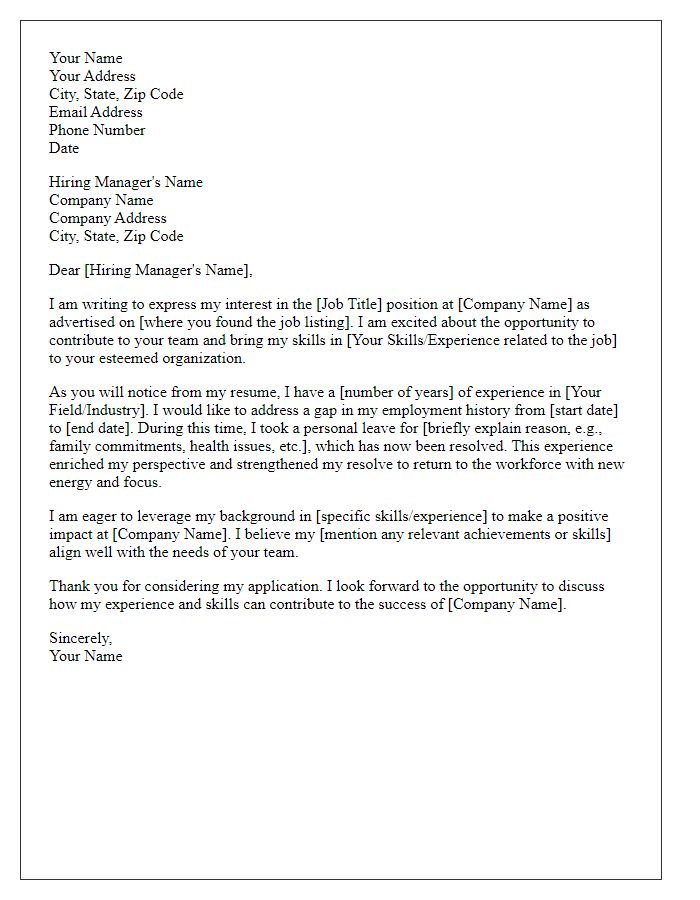
Letter template of job application explaining employment gap for education pursuits.
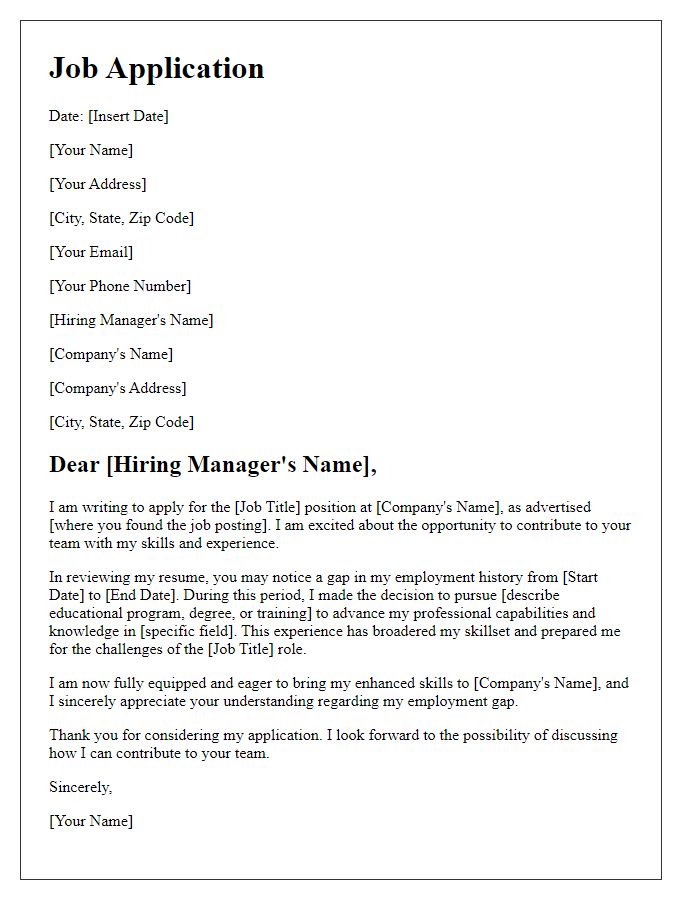
Letter template of job application detailing employment gap for family caregiving.
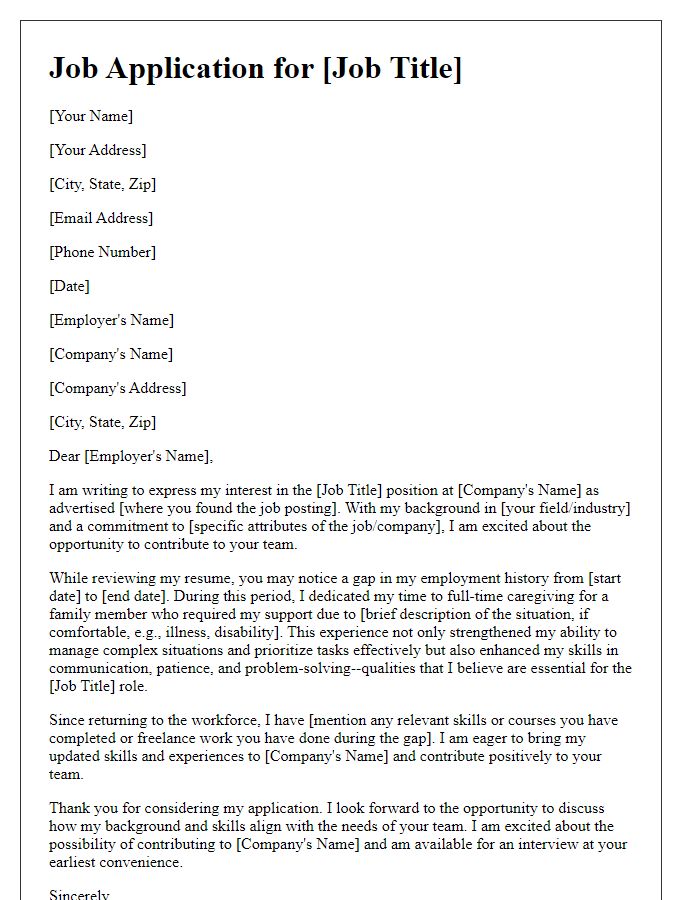
Letter template of job application justifying employment gap for health-related issues.
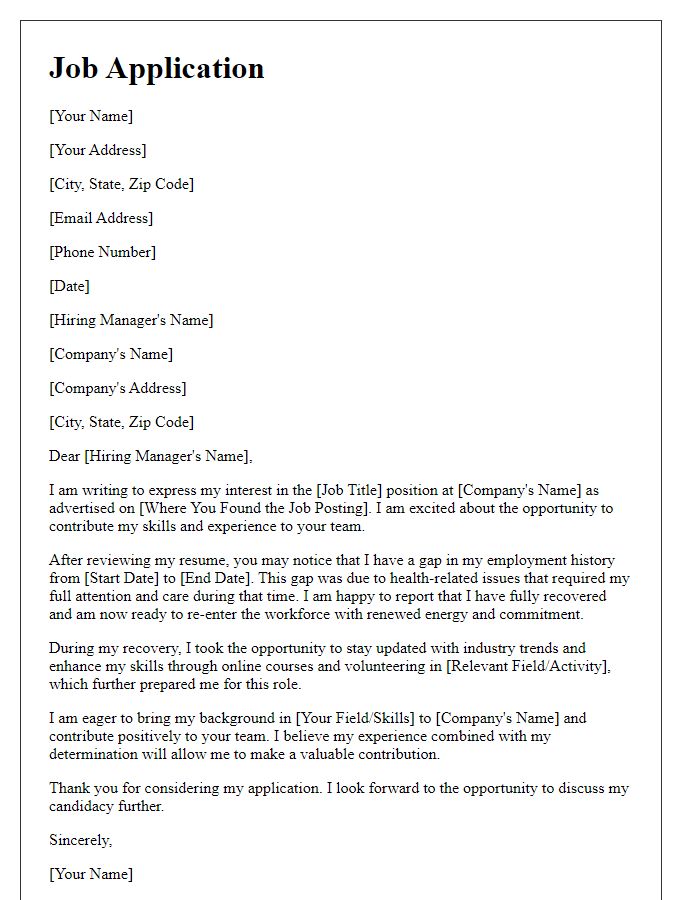
Letter template of job application clarifying employment gap from traveling or volunteer work.
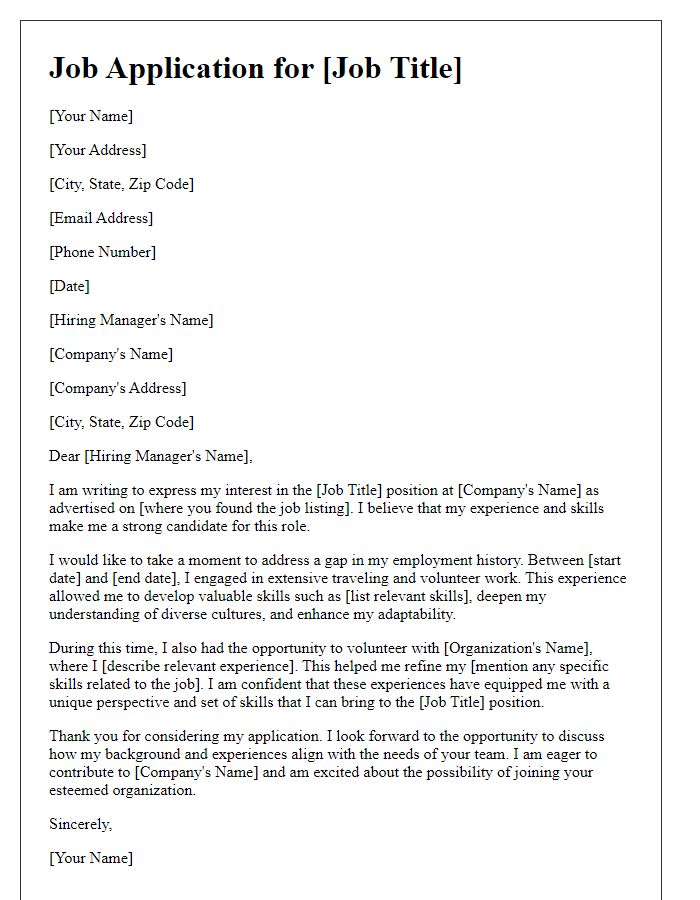
Letter template of job application discussing employment gap for skill development.
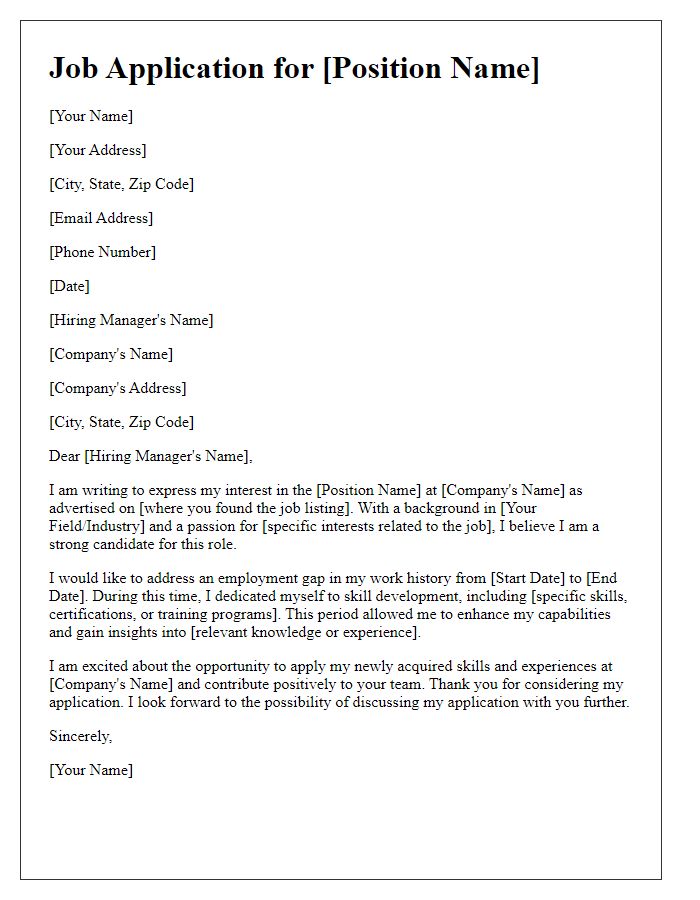
Letter template of job application describing employment gap after relocation challenges.
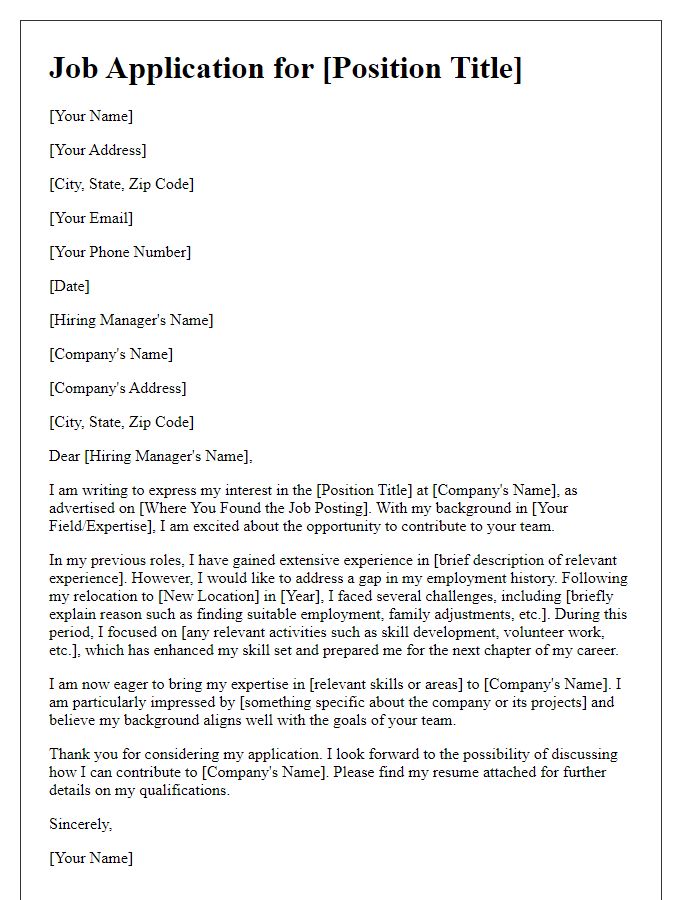
Letter template of job application illustrating employment gap for entrepreneurial endeavors.
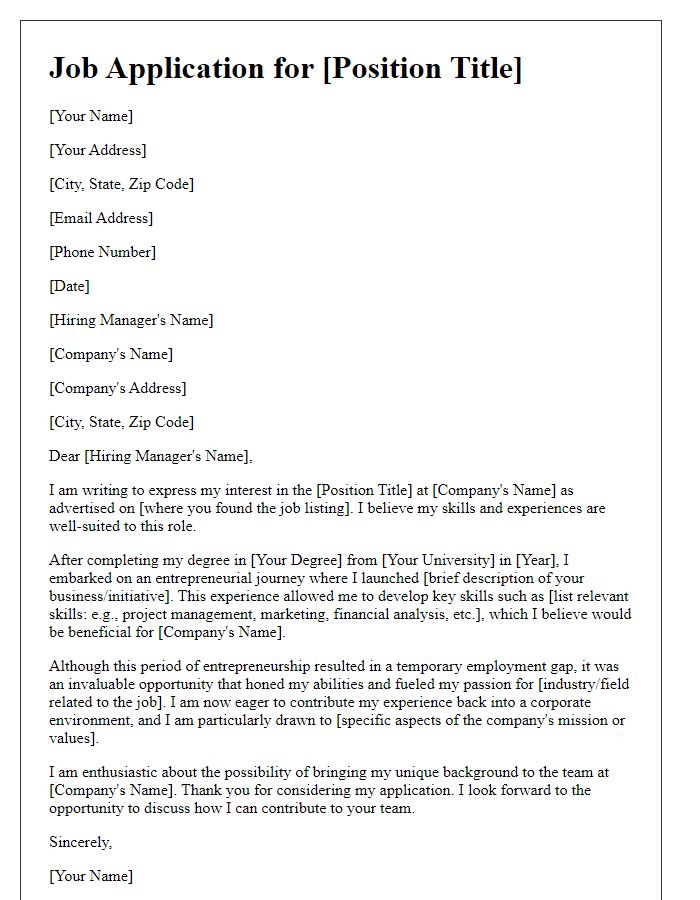
Letter template of job application communicating employment gap due to economic conditions.
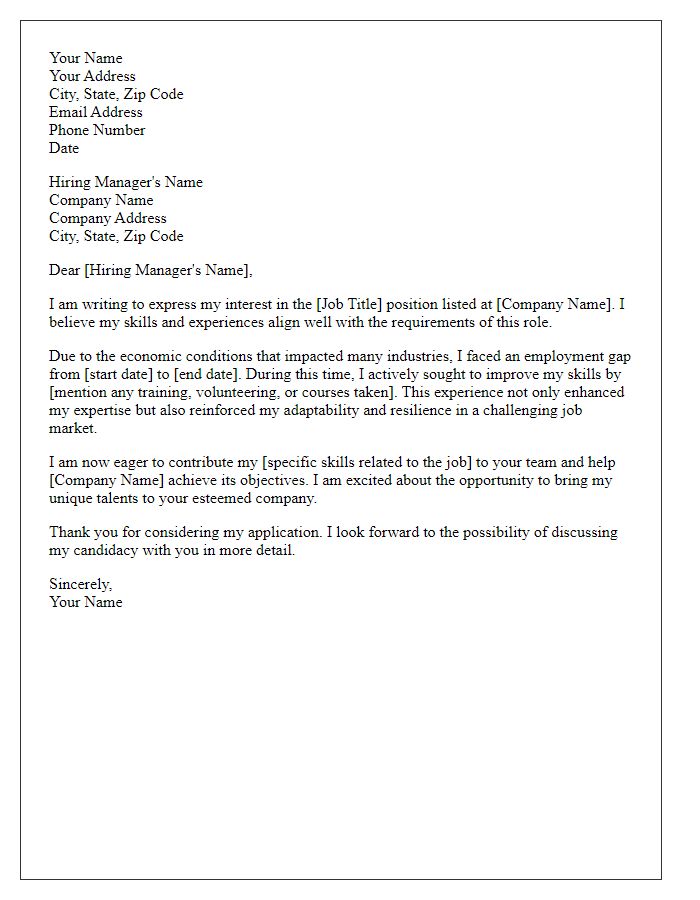

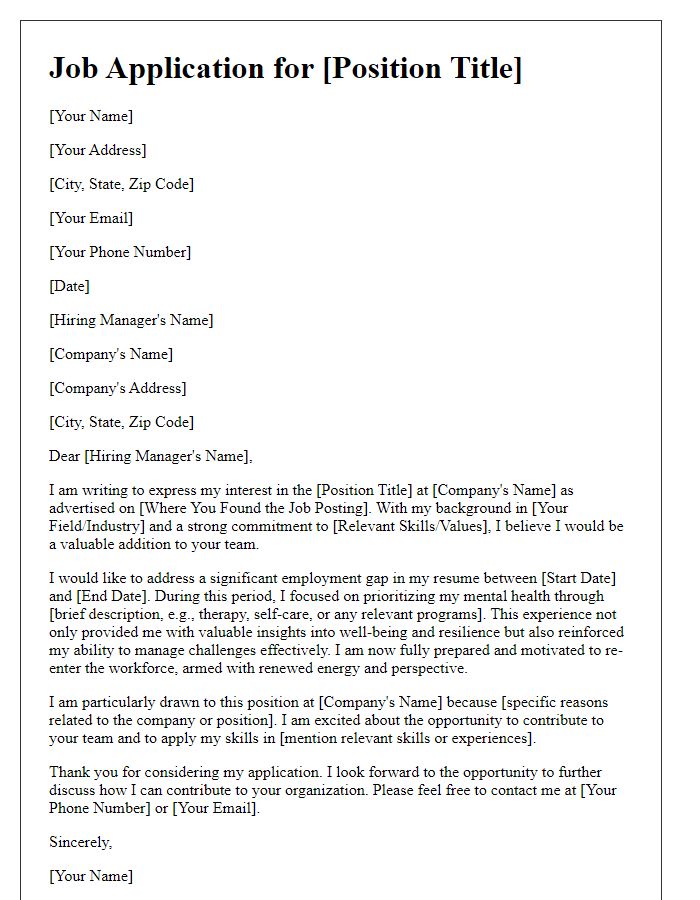


Comments